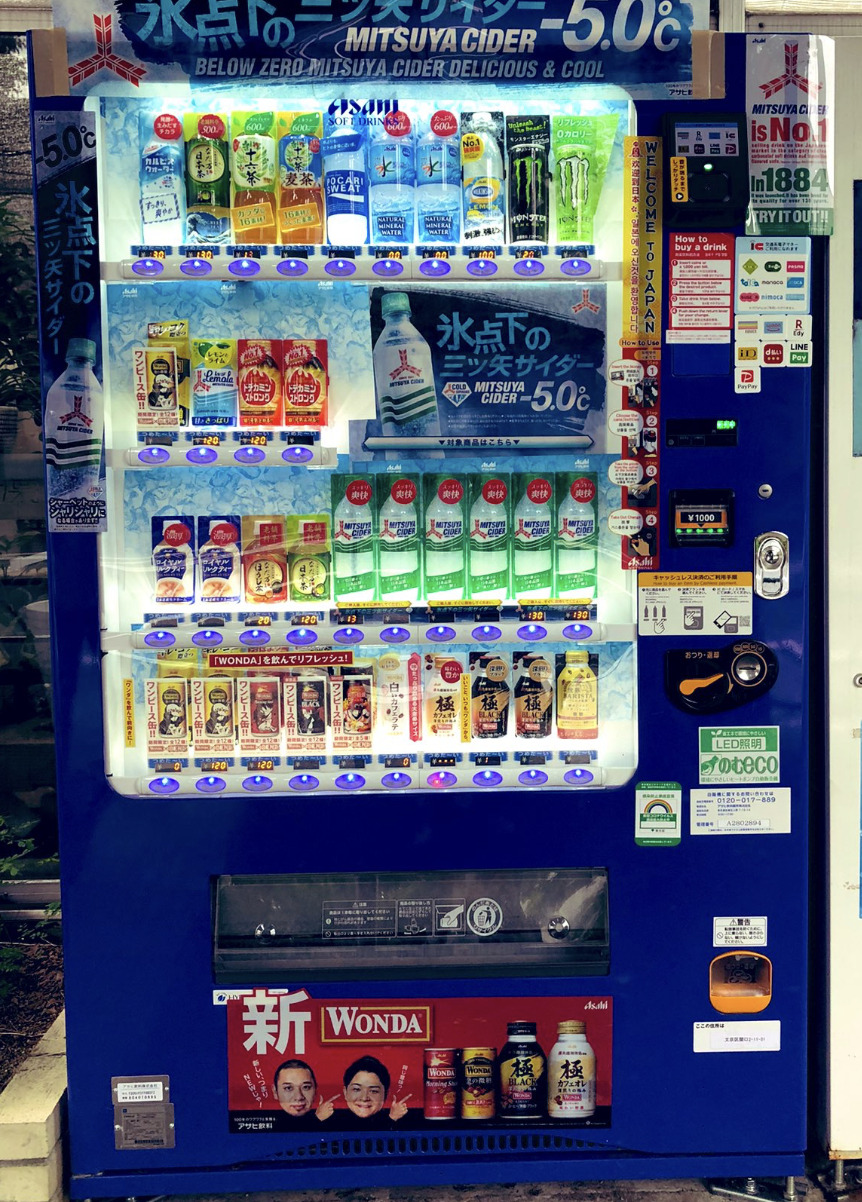The vending machine business is a type of business in which vending machines are put on land owned by the business owner or by someone else, and money is made from the sales of the machines’ goods.
The most important fact is that vending machines do not require a large amount of space and may be used efficiently even on tiny surplus properties.
Japan is one of the leading vending machine nations in the world. The Japan Vending Machine Manufacturers Association did a survey and found that there will be 4,045,800 soft drink vending machines in use by the end of 2020.
The market is much bigger than 5 trillion yen, with beverage vending machines making more than 2.1 trillion yen in sales and making up about half of the market.
Depending on its location, a single vending machine can produce over 3 million yen each month. High demand and steady prices are the two primary reasons for vending machine popularity. These two factors have rendered vending machines an essential component of the beverage industry.
Operation Method
Full Operation
Full operation is referred to as location renting. The corporation only provides the land and installation site in this management technique, and all vending machine operations are outsourced to a specialist company known as an operator.
In full operation, the operator is responsible for the vending machines; therefore, the installer is not required to lease or acquire the machines. The only typical expense is the electricity bill, and the installer receives a margin proportional to the number of vending machines sold. The margin levels are between 15 and 20 percent per unit.
Due to the low unit price of products offered by vending machines, a profit margin of 15 and 20 percent is not expected to generate a significant amount of profit. This is a low-risk strategy where everything may be delegated to the operator, but returns are low.
Semi-Operation
In contrast, “semi-operation” is a management technique in which vending machines are purchased (or leased) from operators and all operations and management tasks are undertaken by the installers. In other words, the vending machine becomes the property of the installation.
In a semi-operated system, the vending machine purchases are the installer’s duty. The installer must purchase the products to be sold and pay the daily electricity bill. As in a typical firm, profit is made by subtracting the cost of purchases from sales, so it is essential to maintain the cost of purchases as low as possible.
Semi-operations are more profitable than full-scale operations, but they are also riskier. It demands a certain amount of managerial expertise, and if it fails, there is a possibility of slipping into the red.
Are vending machines profitable?
With a full operation, all you need is a power source and land; leave the rest to the vendor. The beginning is simple, but getting money is harder. You must examine the location and consider the proper vending machine and management techniques for that area.




Comments